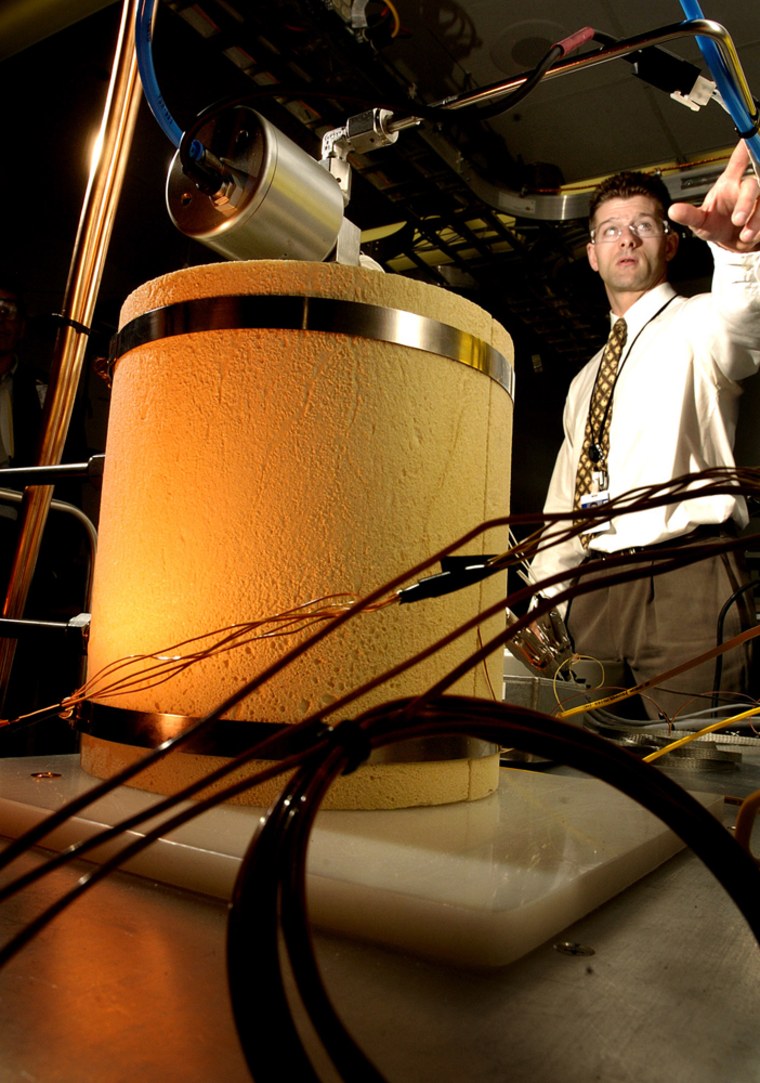General Motors officials gave a progress report Monday on the company's efforts to create the automobiles of tomorrow by developing hydrogen fuel cell technology.
The Detroit automaker is working with government scientists at Sandia National Laboratory in Livermore to design new methods for storing hydrogen fuel — one of the biggest challenges to bringing hydrogen-powered vehicles to market.
"We're looking to literally reinvent the automobile," said Larry Burns, GM's vice president for research, development and planning.
Burns spoke with journalists during a tour of Sandia's research facility in Livermore, about 50 miles east of San Francisco. The national lab, which develops nuclear weapons and military technology for the federal government, has several decades of experience working on hydrogen storage.
By sharing its latest research efforts, GM officials hope to demonstrate that the company is making progress on the key technological challenge of storing hydrogen, a low-density gas that must be converted into a denser form to be stored on-board a vehicle.
"Hydrogen storage is one of the key hurdles in creating hydrogen-based transportation system," said James Spearot, director of GM's chemical and environmental sciences laboratory.
GM and Sandia scientists are developing a method to store hydrogen in a fuel tank by using compounds known as complex metal hydrides that can absorb and release hydrogen.
"We really think we've made great progress," Burns said. "But there are still a lot of great challenges, technological and engineering wise, ahead of us."
Widespread use of hydrogen fuel cell vehicles could reduce U.S. dependence on foreign oil and cut greenhouse gas emissions, backers say. But the technology faces many challenges, including high costs and the lack of infrastructure such as a network of hydrogen fueling stations.
In recent years, GM has been one of the auto industry's most vocal champions of hydrogen fuel cells, which generate electricity from a chemical reaction between hydrogen and oxygen and release only water as waste.
But environmentalists have criticized the automaker for putting so much emphasis on fuel cell vehicles, which are still years away from the marketplace. They say GM should instead focus more on increasing the fuel efficiency of their cars and trucks to cut petroleum consumption and reduce air pollution.
